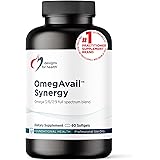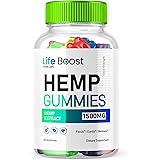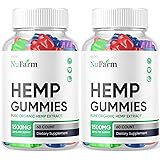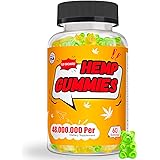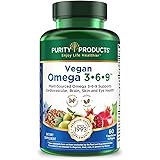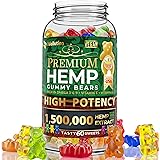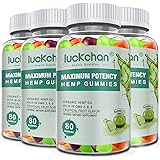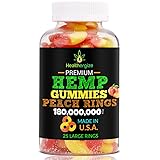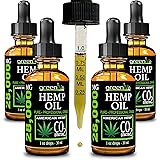In a world often geared towards quick fixes and singular solutions, the journey toward true holistic well-being can feel like a complex path. Many individuals find themselves seeking alternatives when conventional approaches fall short, experiencing persistent symptoms or grappling with the long-term side effects of pharmaceutical interventions. As highlighted in the insightful discussion featuring Dr. Hyla Cass in the video above, this pursuit often leads to the profound principles of integrative medicine, where the body’s innate healing capacities are honored and supported.
Dr. Cass, a distinguished expert in integrative medicine and psychiatry, shares her unique professional journey. Her shift from an allopathic medical background to a comprehensive, mind-body-spirit approach underscores a growing paradigm. This evolution emphasizes the interconnectedness of physical and mental health, prioritizing natural and safe treatments whenever possible.
Embracing an Integrative Approach: A Whole-Person Perspective
Dr. Cass’s philosophy centers on treating the whole person, considering mind, body, spirit, and environment. This contrasts sharply with symptomatic treatment that often overlooks underlying imbalances. Such an approach necessitates a deep dive into an individual’s unique physiological and psychological landscape.
Her experience in guiding patients off psychiatric medications and substances of abuse highlights a critical gap in conventional care. While prescribers often initiate drug regimens, the process of safely tapering off can be complex and undersupported. Dr. Cass advocates for natural supplements as aids in this delicate transition, supporting overall mental and physical health.
The Foundation of Well-being: Lifestyle and Nutritional Psychiatry
Before delving into specific supplements like CBD, Dr. Cass emphasizes the foundational role of lifestyle and nutrition. Our bodies possess remarkable adaptability and restorative power. When individuals return to a lifestyle aligned with our evolutionary design, numerous symptoms often spontaneously resolve.
This “return to nature” involves regular movement, whole-food nutrition, adequate sleep, and stress management. Such shifts can dramatically impact emotional well-being, helping to mitigate anxiety, depression, and other mood disorders. The body’s intrinsic ability to heal and forgive past dietary or lifestyle transgressions is a powerful testament to its resilience.
Unpacking the Gut-Brain Connection: A Two-Way Street
Central to Dr. Cass’s integrative model is the paramount importance of the gut-brain axis. This bidirectional communication pathway links the central nervous system with the enteric nervous system, governing gastrointestinal function. The gut microbiome, a vast ecosystem of bacteria, fungi, and viruses, plays a pivotal role in this axis.
A dysbiotic microbiome, characterized by an imbalance of beneficial and harmful microbes, can significantly impair brain function. Such microbial imbalances can manifest as neuropsychiatric symptoms, including anxiety, depression, and even cognitive dysfunction. Research indicates that gut microbes produce various neuroactive compounds, including neurotransmitter precursors and short-chain fatty acids (SCFAs) like butyrate, which influence brain health and mood.
Beyond Deficiency: Supporting Neurotransmitter Synthesis
Many emotional well-being challenges stem from deficiencies in the raw materials needed for neurotransmitter production. Neurotransmitters are chemical messengers that transmit signals throughout the brain and body. Rather than a “Ritalin deficiency” or a “stimulant deficiency,” individuals often lack the precursors required to synthesize essential compounds like dopamine, serotonin, and GABA.
For instance, an inadequate supply of phenylalanine or tyrosine can hinder dopamine synthesis, impacting concentration and focus. Similarly, low tryptophan levels can impair serotonin production, influencing mood regulation and sleep. By providing these essential amino acid precursors and cofactors (e.g., B vitamins, magnesium), the body can restore its endogenous production of these vital brain chemicals. This approach empowers the body’s internal pharmacy, a sophisticated system capable of manufacturing everything it needs given the right raw materials.
Unlocking the Body’s Innate Pharmacy: The Endocannabinoid System
Dr. Cass introduces a crucial physiological system, often overlooked until relatively recently: the endocannabinoid system (ECS). Discovered in the 1980s and 90s, the ECS acts as a master regulator, maintaining homeostasis across various bodily systems. It comprises three key components: endocannabinoids (naturally produced cannabis-like molecules like anandamide and 2-arachidonoylglycerol or 2-AG), cannabinoid receptors (CB1 and CB2, found throughout the brain and body), and enzymes that synthesize and degrade endocannabinoids.
The ECS is found in the brain, immune cells, digestive tract, lungs, heart, skin, and reproductive organs. Its primary function is adaptogenic, helping the body de-stress, relax, and maintain balance in response to internal and external stressors. A well-functioning ECS is critical for mood, sleep, appetite, immune function, and pain perception.
CBD: A Key to Endocannabinoid Harmony
Cannabidiol (CBD), a prominent cannabinoid from the hemp plant, interacts with the ECS to promote balance. Unlike THC, the primary psychoactive component of cannabis, CBD is non-intoxicating and does not produce a “high.” This distinction is crucial for many individuals seeking therapeutic benefits without altered consciousness.
Dr. Cass highlights the critical imbalance caused by modern recreational cannabis breeding, which has led to strains with excessively high THC and low CBD. This imbalance can trigger adverse psychological reactions, including anxiety, paranoia, and even acute psychosis in susceptible individuals. The therapeutic potential of CBD, therefore, extends to mitigating these negative effects by helping to neutralize high THC concentrations.
CBD’s mechanism of action is multifaceted. It does not directly bind to CB1 and CB2 receptors in the same way as THC. Instead, it influences the ECS indirectly, for example, by inhibiting the enzyme fatty acid amide hydrolase (FAAH) that breaks down anandamide, thereby increasing the levels of this “bliss molecule” in the body. Furthermore, CBD interacts with other non-cannabinoid receptors, such as serotonin receptors (5-HT1A), which play a role in anxiety and mood, and TRPV1 receptors, involved in pain and inflammation.
Navigating the Landscape of CBD Products: Full-Spectrum, Broad-Spectrum, and Isolate
Understanding the different types of CBD products is essential for optimal therapeutic outcomes. Full-spectrum hemp oil extracts contain all the naturally occurring compounds of the hemp plant, including other cannabinoids (CBN, CBG, CBC), terpenes, and flavonoids, alongside a trace amount of THC (below 0.3% by dry weight, as federally legal). This creates an “entourage effect,” where the compounds work synergistically to enhance therapeutic benefits.
Broad-spectrum CBD products contain a similar array of compounds but have had the THC almost entirely removed. CBD isolate, on the other hand, is pure CBD with all other plant compounds removed. The choice among these forms often depends on individual needs, sensitivities, and any concerns about THC, even in trace amounts.
The importance of product quality and third-party certification cannot be overstated. With a largely unregulated market, consumers must seek brands that provide transparent lab testing. These Certificates of Analysis (CoAs) verify cannabinoid potency, ensure the absence of heavy metals, pesticides, and other contaminants, and confirm the product’s purity and safety. Dr. Cass’s focus on high-quality hemp oil extracts underscores this commitment to efficacy and patient safety.
The Acute vs. Chronic Medication Dilemma: A Natural Alternative
The discussion touches upon the critical distinction between acute and chronic use of pharmaceutical medications. While medications can be life-saving in acute crises, their long-term use, particularly for mental health conditions, often carries significant risks. Dr. Cass notes that in Europe, temporary use of antipsychotics for acute psychotic episodes is often followed by cessation, leading to better long-term outcomes and fewer relapses compared to continuous medication.
This perspective challenges the prevailing notion that many conditions require lifelong medication. Instead, it advocates for a strategy where natural supplements and lifestyle interventions support the body’s healing processes, potentially reducing or eliminating the need for ongoing pharmaceutical intervention. The goal is to move beyond mere symptom suppression and address the root causes of imbalance, leveraging the body’s inherent capacity for wellness.
Cultivating Clarity: Your Hemp & CBD Oil Q&A
What is integrative medicine?
Integrative medicine is a whole-person approach that considers your mind, body, spirit, and environment. It focuses on using natural and safe treatments to support your body’s ability to heal itself.
What is the ‘gut-brain connection’?
The gut-brain connection refers to the communication pathway between your gut and your brain. The bacteria in your gut significantly influence your brain function and can affect your mood and overall mental well-being.
What is the Endocannabinoid System (ECS)?
The Endocannabinoid System (ECS) is a system in your body that helps maintain balance across many functions, including mood, sleep, appetite, and immune response. It works to help your body adapt to stress and stay healthy.
What is CBD and how does it relate to the ECS?
CBD (Cannabidiol) is a compound from the hemp plant that helps the Endocannabinoid System (ECS) maintain balance in the body. Unlike THC, CBD is not intoxicating and works indirectly to support the ECS without causing a ‘high’.


